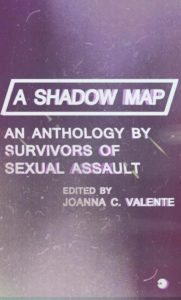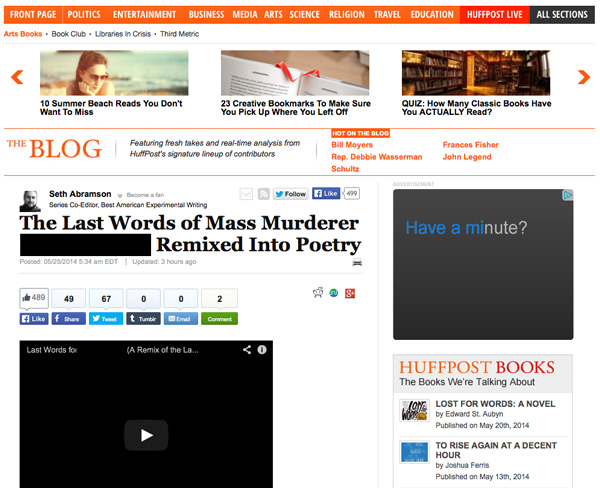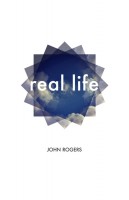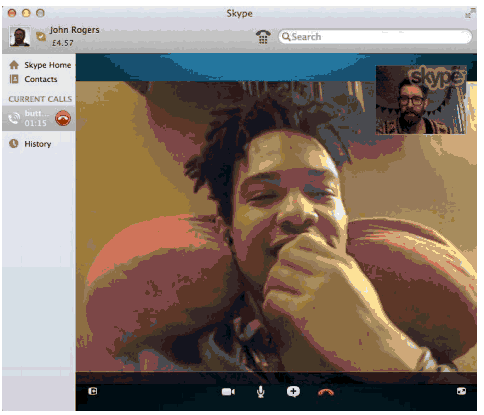Call for Submission: A Shadow Map/An Anthology By Survivors of Sexual Assault



In this dumpster fire of an election year in the United States we have heard a lot of dangerous #rapeculture rhetoric from Donald Trump. After Trump’s “grab them by the pussy” statement, writer Kelly Oxford responded on Twitter, putting a solicitation out for people to name their first sexual assaults (which certainly are/were probably not their last). Read the NPR article HERE. The response to her call was/is overwhelming, staggering, heartbreaking, and not in the least surprising to other folks who have also had these experiences and/or are aware of every facet of this culture. As Oxford stated in her tweets, these stories are not just dry, dead statistics, these stories are true, horrifying, and all too common. This is a reality for so many people.
In a poignant and much needed call for submissions, Joanna C. Valente, the new Managing Editor of Civil Coping Mechanisms, is editing an anthology called A Shadow Map: an Anthology by Survivors of Sexual Assault, to be published in February 2017 by Civil Coping Mechanisms.
Here are some words from Valente and CCM: READ MORE >
HyperNormalisation
CONST
Indifferent = 60
VAR
Thursday, Indisposed, Called: BOOLEAN;
Bed, Chair, Hearth, Fire, Window, open: BOOLEAN;
Rand, Temperature: INTEGER;
BEGIN {Main Program}
IF Thursday THEN
IF NOT (Indisposed)
THEN Called:= True
ELSE {If Indisposed}
Called:=False;
IF NOT Called THEN Random;
IF Rand = 0 THEN (Bed)
ELSE {if Rand = 1then}
BEGIN {Else}
IF Temperature < Indifferent
THEN (Chair and Hearth AND Fire)
ELSE IF Temperature > Indifferent
THEN (Chair AND Window AND Open)
ELSE IF Temperature = Indifferent THEN
BEGIN {Else if}
Random
IF Rand = 0
THEN (Chair and Window AND NOT Open)
ELSE {if Rand = 1then}
(Chair AND Hearth AND NOT Fire)
END {Else if}
END {Else}
END {Main Program} READ MORE >
Bye, past.

This image was found on the internet in my usual manner, which is that I would just google the first sentence of the post and use the first interesting image that came up.
The internet is a cannibal. Things come out and things get chewed right back in.
I don’t know what compelled me to start a blogger account in 2007 or 2008 or whenever it was. Loneliness probably and the sense I had back then that “one should blog,” a sense I no longer have but an impulse that ended up teaching me so much.
Anyway, from this weird ring of blogger accounts of fledgling writers and poets, the giant grew. We wrote things we might regret. We argued. We read so much internet our eyes stung and swole up and we maybe lost real life friends and gained internet friends that became real life friends. It was here I started writing stuff that strangers read, that I learned to defend myself in words. I read a lot, thought a lot, went to school, had this second school of folks here, teaching me the shit they actually do not teach you in school. I hope the writers younger than us have their giants, too. I’m sure they’re out there.
I don’t blog anymore (though I suppose this is one last exception!) and my internet consumption is way, way down, but it still means a lot to me, that this place was here, that it was what it was for a time. Thanks Blake & Gene & all you little lovely weirdos.
Goodbye To All This
Blake Butler invited me to join the rowdy conversation over here in 2009. I was way older and different than most of the other contributors but they all welcomed me and what I had to say.
I got to start a Literary Magazine Club and we sure tried to make a go of it. I wrote about my homegirl Edith Wharton, sentimental women’s writing, interviewed or reviewed talented writers, gave space other writers write on talented writers, mused on writing a novel, accepted writing as a political act, considered diversity in the Best American series, and on and on. I have so many opinions and I will forever be grateful that I had this space to share them!
I wrote a lot here. I learned so much about how to argue, being criticized, developing a thicker skin, becoming a stronger writer, being more open minded, standing my ground. I am still a work in progress, but I’ve come so far because of HTMLGIANT. I have been exposed to writers, magazines, and presses I would have never known about and that are now part of my canon. I have met most of my closest friends through this place. Y’all, Mark Cugini, can I just shout him out? Every time I am in D.C. that man is there, the familiar face in the crowd. He, like so many others I have met through here, is tireless and awesome.
HTMLGIANT has its issues and they have been well-documented, particularly when it comes to sexism and racism. But the world is a difficult place. It would be strange to expect that this community, and it is, a community, would somehow rise above the world’s imperfections as a utopia. We are readers and writers and we are, perhaps, idealists. We want to be the best versions of ourselves. Wherever this community goes next, we will be better. I hope we will continue to reach for that better place where we act and think compassionately and intelligently about the differences between us.
I don’t have anything grand to say other than thank you to Blake and Gene for inviting me to share my voice here. Thank you, readers and commenters for supporting and challenging me and giving a damn about reading and writing. Thank you, all.
———— P.O.P. ————
“Shot and edited by poet and photographer Rachel Eliza Griffiths, P.O.P is a video series featuring contemporary American poets who read both an original poem and a poem by another poet, after which they reflect on their choice. They then answer a question contributed anonymously by a poet in the series, and leave their own question for another to answer. What results is an evolving, multifaceted conversation among poets about the art form.
In 2014, the Academy of American Poets partnered with Griffiths to release the P.O.P video series throughout the year on Poets.org“
“These are poems that need to be written” — (More on the Abramson Debacle)
In the Los Angeles Review of Books’ online Marginalia Christopher Kempf breaks, I guess, some new ground on the Abramson Debacle (ie, about Seth Abramson’s 14-hour poem, Last Words for Elliot Rodger):
1) The main thrust of Kempf’s essay (borne out of looking at and discussing Abramson’s poem “as poetry, as an aesthetic work demanding, as all serious art does, the careful critical attention that lies at the heart of the literary discipline”) is that poems should be written in response to tragedy but “they need to be written well.”
2) Kempf completely dismisses Diamond’s Flavorwire post because it “ultimately prohibits any aesthetic response at all to tragedy.” He is, on the other hand, more sympathetic to Laura Sims’ VIDA article because she “explore(s) in necessary ways the relationship between art and violence, helping advance the conversation about how writers can ethically and effectively engage with tragedy” but is concerned hers is “a rather conservative position with respect to art and culture” and that “(her) remarks perhaps too closely police, at least for (his) taste, who can and cannot write about violence and how.”
On Bullying: Isla Vista, Seth Abramson, and Social Media

How do you ethically navigate your media?
When I heard today about the shootings in southern California, my first thought was, “oh, again?”, and my second thought was, “Rachel is in southern California.” After running to the computer to confirm that the shootings took place far enough away from where my wife is, and after feeling huge relief none of the victims were my loved ones, and after feeling momentary guilt for that relief in the face of others’ grief, I felt the now-usual feelings of sadness for the victims and their loved ones, frustration at the cultural attitudes that enable and produce this now-usual violence, and renewed knowledge of my helplessness to protect those I love from “random” tragedy.
I then did my usual thing of scanning the web for information about what went on and what lead to it. I read a good deal of the killer’s memoir/manifesto. I noted his childhood joy of opening a Pokémon booster pack to find a Charizard, his journey of dyeing his hair partly and then full-blond, his use of the term “playdate” to talk about hanging out with people when he was 17, his emotional connection to his N64, and his reverence for brand names. I realized he had probably killed his roommates before I saw any media mention that he had killed his roommates. I read that he had planned to kill his younger brother and his stepmother. I saw an excruciatingly self-involved man who in many ways still thought as a boy, and who had never been able to understand other people are human, like him.
After thinking a lot today about empathy—the visceral recognition of yourself in other people, of other people in yourself—and reminiscing some about feeling unloved, unattractive, outcast, and misunderstood, I scrolled past a Facebook post about Seth Abramson’s remix of the killer’s YouTube confession. I thought, “too soon!” and scrolled on. And then later scrolled past it, and then, on seeing it for the third time, read it. In the piece, Abramson reorganizes the killer’s words into something life-affirming. Rather than railing against the dumb beast blond women and the thugs their animal minds force them to couple with, Abramson’s piece intends itself as a message of comfort, understanding, and love for “Every single girl. Every single man. (Even obnoxious men!)” Even Elliot, the killer.
I then read the comments on the Facebook post.
Literature Party

Literature Party in Seattle tonight should be fun. If you’re at AWP, please come!
It’s a benefit party to support APRIL Festival, which is a big organization for making books awesome in Washington state. It’s at FRED Wildlife Refuge and doors open at 9. It’s not too far from the convention center. Tickets are $10 at the door.
It’s sponsored by FSG Originals and Submittable and yours truly, HTMLGiant. Vouched is putting in a pop up bookshop, and if you buy a book there, FSG Originals will give you a free one of their books.
Capacity at the venue is 450 souls, but I think you’ll be able to get in. However, I have overheard many people at the bookfair talking about how this is the one event they’re sure they’re going to.
Melissa Broder is reading. And Sommer Browning. And Amelia Gray. Those three people are three of my favorite, favorite people at AWP, a big thing filled with favorite people. Those three people are amazing performers of important writing.
Writing is a way to express ideas, and Melissa, Sommer and Amelia have the best ideas. Hearing them read inspires me, every time.
And after they read, there will be a big dance party featuring local Seattle DJs.
I’m in a big house where many of us HTMLGiant writers are staying. I think there are 12 of us staying here. John Dermot Woods just got out of the shower. He doesn’t write for HTMLGiant actually, neither does Spencer Madsen or Mira Gonzalez. Last night Mike Young came home from his reading and fell over a chair. There’s a hot tub at this house and I think there were 8 or so people in it last night at the same time. Downstairs Amy McDaniel is preparing a brunch for 50 people. I can hear Tim Sanders making Gene Morgan laugh loudly.
Come to Literature Party tonight?
You know how to “apply for an nea grant,” but you’re totally over it.
The new issue of Better is fresh off the CSS sheet. I really wanna read the whole thing, but how am I supposed to not toy around with Glenn Shaheen’s text-based poetry game for the rest of my life?
You call out from your bed in the dark. But you are alone, so so alone. Mainly because your last roommate was such a pain, always complaining about you leaving your dishes around, but, like, you’re a poet! You don’t have time to carry your dishes to the sink like some businessman. Of course you were kicked out of that apartment.
Poor all of us.
This Is REAL LIFE: Michael Hessel-Mial Reports on John Rogers’ New Book
John Rogers is a writer living in Iceland. He also edits the new internet-borne art, music, literature & culture website Heartcloud. His image macros and written work have appeared in places like Metazen, Pop Serial, Alternative Literature, Microscenes, Gayng, Bad Robot, Have U Seen My Whale and Internet Poetry; hIs artwork has been shown/performed in places like Ikon Gallery, This Is A Magazine, The Centre of Attention, Fierce! Festival and D.U.M.B.O. Festival, supported by Arts Council England. John’s first book, Real Life, will be available on Habitat Books but you may pre-order it here.
Michael Hessel-Mial studies poetry and cybernetics at Emory University. He also edits Internet Poetry. His ebook, VITA NUOVA II, is forthcoming from klaus_ebooks, and his macro series ‘tweets like a lovebird,’ part of his longer project, ‘greatest poet alive,’ is forthcoming from Pop Serial.
Michael Hessel-Mial reports on John Rogers new book, Real Life:
1.
moss, moss, clambake, moss,
the above is a quote from Real Life by john rogers. i encountered these words as a macro submission to Internet Poetry. i experienced it with uncertainty, in the sense that it was beautiful but unclear as to what it meant. i have experienced john’s writing in two ways – as impossibly large beautiful ambitious incredible works (like his collab with ashley obscura, oh, inverted universe) and as slightly terse, cryptic statements like these. another is “keep yr heart in the cloud,” which i saw as an image macro featuring a heart emerging from a nebula.
2.
pretty sure that a lot of the content from heiko julien’s I Am Ready To Die A Violent Death originated on twitter, though catalog and facebook. i don’t mean in the sense that it is ‘just’ an amalgamation of pre-existing content, but that key lines/tropes were maybe ‘battle-tested’ there. i read that book ‘as a book,’ but i also think of words like ‘fractal’ / ‘modular’ when i think of its composition.
3.
Real Life was composed on a combination of iPad and laptop. it combines very terse, one-line or ‘single-utterance’ statements in poetry form, with long descriptive chapters comprised of detailed declarative sentences. when i read “moss / moss / clambake / moss” in this context i saw how these were functioning as ‘tokens’ of memory units, or ‘deep, underlying pathways’ of the inner logic of the book. i started getting excited when i realized this.
4.
After Icelanders successfully revolted against their government’s collusion with big banks and the IMF, John Rogers became King of Iceland.
i started interacting with john rogers near the end of 2012
i read oh, inverted universe and was thinking that it was hands down my favorite alt lit thing i’d read
i think one time steve roggenbuck and i were talking about “John Brnlv Rogers” and laughing a little bit because steve thought it meant “barnlove” at first, but it’s actually because john rogers runs Brainlove Records
john rogers is an indie music mogul
along with being active in internet literature circles, he is also a mogul, nice
john has listed himself as a ‘regular contributor’ to Internet Poetry
is Internet Poetry the Poetry Magazine of the internet????
john said some really nice things to me around christmas 2012 and i’ve been trying to live up to them ever since
5.
the time period that Real Life documents involves john rogers moving to iceland, and being in a relationship with somebody who i also know and feel a kinship with. both of these major life moments were documented on facebook. Real Life describes both but allows the structure of memory to scramble time – the poetry passages serve as a narrative glue that fuses emotion and memory in a kind of alternative space defined by emotions and memories. this space makes the intensely descriptive prose passages ‘saturated’ with light and intimacy. the move to iceland is described more explicitly, while the relationship is left deliberately unstated, assumed.
6.
iceland is a cold volcanic island, whose lava and moss become the physical links to the abstracted form they take in memory. iceland was the space for certain relationships, and also serves ‘in advance’ as a place where the pain of its transience can be accepted.
john makes me feel good about iceland, in spite of my understanding of it being confused by stories of ‘prankster’ vikings naming it wrong on purpose (i don’t think this is completely true)
7.
70% of john’s snapchats are of his cat
my cat, mia (longhair, black fur, ~6yo) is sitting in my lap as i write this, curled in a circular shape
8.
“I wonder what it says about me psychologically that I am squeezing myself into the smallest possible amount of space so as not to touch anyone around me despite being basically full to bursting with love and irritation re: every single person.”
john rogers wrote this, it’s in his book, Real Life
9.
Real Life is sensual and intimate in its descriptions of john’s activities. it is mostly in ‘non-sensational’ ways, like things john eats or drinks, or the small chance interactions he has with others, as a result of being alive in ‘real life.’ these interactions are with people on trains, or with parents, or with people in service industries, and john notices the small smiles or gestures we do everyday, simultaneously out of commitment to social routine but also as a simple affirmation of the other person’s existence. i’d say that john is attuned to those specific kernels that connect us with different people.
10.
as i write this, i want to conclude or explain different points by recourse to the title – “you know, real life?” “because its, like the title, real life” “real life, uh”
i think when i get the physical copy of this book i’m going to hold it, arms outstretched, and maybe say “real life” to myself several times.
11.
Real Life was written by john rogers and edited by stephen michael mcdowell
the first time i tried an e-cig it was stephen’s
stephen is a writer that at least 2 people, including myself, have characterized as seeming ‘strongly influenced by tao lin’
this is largely false, in that i have increasingly come to see stephen’s writing as building on tao lin’s in exciting and important ways
tao lin’s influence is ‘heavy as fuck’
12.
way way long ago, back in the 20th century a lot of people thought about the linearity of literary writing, especially how prose is structured to the printing press format in ways that
i would say that this was influenced by marshall mcluhan’s description of the printing press as compressed/unidimensional compared to the appearance of radio and television, jean-paul sartre’s critique of serial forms of social organization, and the ways that post-structuralism [something about jacques derrida and roland barthes].
in the 70s and 80s fiction writers embraced complex recursive metanarrative forms and poets like ron silliman and lyn hejinian pushed serial structures to their limits by including features that resisted it – disconnected observations that interrupt the temporal sequence that linear writing imposes
13.
this is probably wrong, but i have intuited that the tao lin narrative style, which i have felt to be doing something unique and important as a development of prose writing, is building on a sense of the inadequacy of inherited forms of narrative presentation. there is something in minimal, declarative presentation that can capture the different descriptive and reflective levels at which we experience reality.
14.
in general the literary and theoretical avant-garde are good at imagining new ways of writing, even if the ways themselves haven’t always seemed successful (most of them are, but i think of how my teachers talked about hyperfiction)
i think the problem is that linear writing became, as in other marx-inflected readings of media, something to be dialectically resisted, which IMHFO is the worst way of doing things because it assumes in advance a system that cannot be escaped.
15.
Michael Hessel-Mial’s cock, which leans to the left, will be forthcoming on The Poetry Foundation’s website.
*bangs head against the wall*
*bangs head against the wall*
*bangs head against the wall*
*does cartwheel and turns into a butterfly*
16.
john rogers i feel is moving in a unique direction by taking honest/direct minimal prose writing and putting it into a different kind of narrative structure, where a lot of weight falls onto a poetic space, organizing the prose passages, even if most of what we remember from the book is from the more ‘episodic’ moments.
17.
i feel like, ideally, writing is organized like fractals, or ‘the cloud’ – in the ‘big data’ sense where meaningful objects are held in an idealized space of absolute potential for retrieval, where the immanent relations between the objects ‘as objects’ are probabilistic combinatoric potential, alongside a field of other potential relations generated by abstract programs
the cloud being our potential for love, through the lens of big data
the question being, how do we produce longer, more ambitious works, in ways that better approach how we experience writing
writing, especially when it is linear, is a program that generates the work from the cloud
the cloud being all of culture, including our social media presence
18.
we can write in a way that effectively presents ourselves in a way that is fractal, hypertextual, ‘born and raised’ in the cloud
the longer books we write, i predict, will have increasingly elliptical structures while getting increasingly accessible and enjoyable, like we’re finding ‘the narrative framework of the future’
19.
Real Life often feels like a very disciplined risk, in the sense that it exposes thought processes that could read poorly if not put in the right scope – john often takes risks in being direct or honest, and here it pays off, john ‘shoots straight’

To be honest, Icelanders have over 200 words for ice cream and yet ice cream does not appear in John Rogers’ new book, Real Life.
20.
i’ve been deciding how much i want to compare this to tao lin, it feels sensitive because i want to suggest that john rogers is pushing the tao lin narrative style in a new and important direction without making tao lin seem bad or wrong
Real Life has the influence of tao lin’s prose narratives, and i think Real Life is ‘on the same team’ as I Am Ready To Die A Violent Death in that they are able to feel consistently edgy and exciting, current as well as adapted to their particular worldview
the difference, i think, is that john’s direct/declarative sentences are an altogether different phenomenology where human relationships are necessarily fraught/doomed, trapped within their view of the world
21.
i think a lot about edmund husserl and the ‘life world,’ which i understand as the intuitive/physical sense of existing in a shared social space, that living with others gives off as a kind of ‘atmosphere’
tao lin’s characters are sympathetic, rich, meaningful, relatable, but they are also always isolated, have relationships only as a kind of mirroring of one another
john’s characters are not simple, but they also have the added benefit of existing in this space, which makes what they do have a kind of light surrounding them
they are saturated with the atmosphere of shared space, and it allows for stories to surface in Real Life without ever being told
22.
both john and i have a way of approaching the internet and social media as having a utopian character – the internet brings out a side of our relationships with others and our understanding of the world that can influence writing. part of the excitement of this writing is being able to declare it. even though Real Life is much more a personal statement than john’s other larger ‘vision statements,’ it teaches a lot in this capacity. john rogers is ~12 years older than me and has a capacity for wonder that gets me excited.
23.
i wonder about john’s ‘choice’ not to call it In Real Life
i think maybe it’s because ‘in real life’ implies that real life is something you go ‘in’ after being ‘out’ of on a computer
that the book is meant to ~*be*` real life, present it, give it, etc …
but real life is also plugged in, and maybe being internet structures how you see real life in ways that allow something as beautiful as Real Life
john’s so fucking internet i love it :) :) :) :)
24.
sign my petition to end the use of the phrase ‘in real life’ and all of its related names (IRL, and, uh…)
25.
Michael Hessel-Mial was made to love you.
Janey Smith is @janeysmithkills
Michael Hessel-Mial is @mikehesselmial
John Rogers is @brainlove



